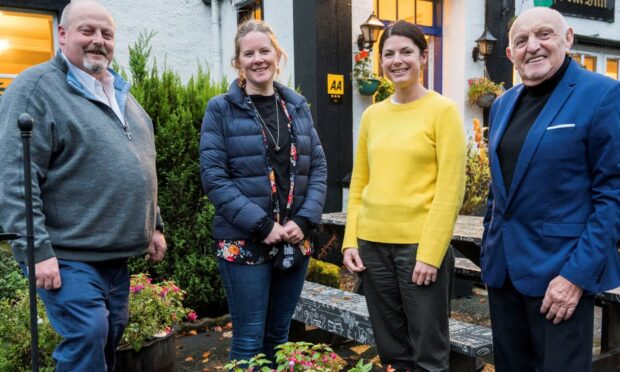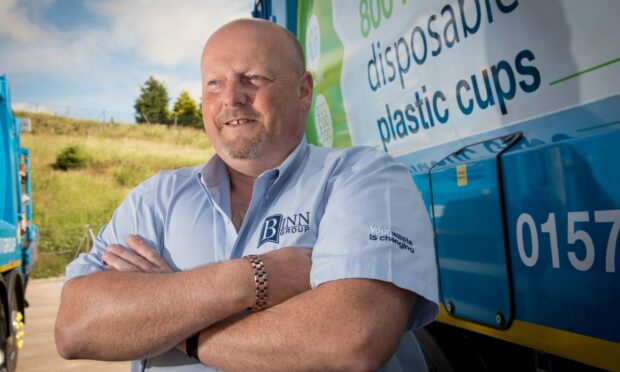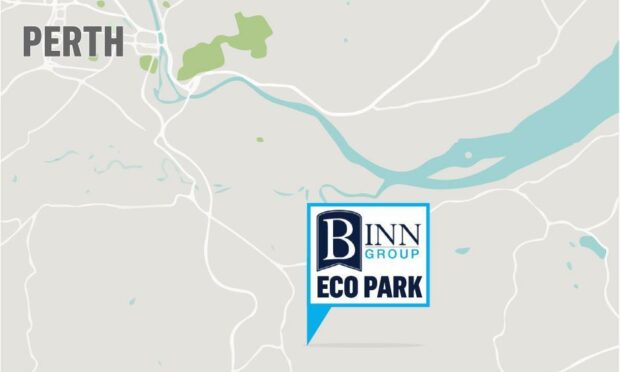Perthshire-based Binn Group played host to a a sustainability workshop inspired by the COP26 conference in Glasgow.
Binn Ecopark at Glenfarg hosted the event in partnership with Design Council, the UK government’s national advisor on design.
Representatives from local businesses and community groups were at the event.
While international leaders are in Glasgow for the COP26 conference, a range of designers from across the UK attended Binn Ecopark.
It preceded the Design for Planet festival at V&A Dundee.
Leading the visit was Design Council partner and URGE Collective co-founder Sophie Thomas.
Ms Thomas led a workshop highlighting how end-of-life waste materials can be reused in design projects.
Processing 500,000 tonnes at Binn Group
Binn Group is a family-run business employing 145 people across its operations in Perthshire.
This includes its 200-acre Binn Ecopark. a low-carbon, next generation resource recovery complex.
The circular economy site is focused on waste management, renewable energy and low carbon eco-innovation.
It processes over 500,000 tonnes of material per year with a recycling rate over 90%.
The facility also boasts an anaerobic digestion plant and green-waste composting systems.
It also has four wind turbines which form the core of a new private grid project.
This will transform power use at the site, with proposals for a private grid connection to support Perth’s low carbon smart energy city objectives and benefit the wider community.
Binn Group boss ‘delighted’ to host event
Binn Group chief executive Allan Macgregor said: “We’re delighted to host this event with the Design Council where we’ve welcomed both local businesses and representatives from across the UK to the Ecopark.
“We’re really pleased to work in partnership with the Design Council to promote this agenda and explore new means of how we can further develop sustainability-focused innovation.”
Design Council chief design officer Cat Drew was full of praise for “amazing” work at the Perthshire site.
Ms Drew said: “This facility is world-class and a provides a great example of innovation within the UK’s circular economy.
“It also compliments the work we’re doing at the Design Council to promote more sustainable practices across the UK design sector.”
A greater emphasis on sustainability
Ms Thomas, meanwhile, said more of a focus on sustainability at the early stage of projects would help.
She said: “It’s essential that we reuse more waste materials within design.
“An estimated 80% of the environmental impact of a product is at the concept design stage.
At @binnwaste Eco Park with @designcouncil today ahead of #DesignforPlanet. They told us about the challenges they face from lack of policy, consumer knowledge, and market demand to use recycled materials.We need better dialogue and connected systems to build a circular economy. pic.twitter.com/SUaVP0Ixap
— Sophie Thomas 💙💙💙 (@tmsophie) November 9, 2021
“We must put a greater focus on sustainability at the early stages.
“The use of raw materials used in design accounts for around 45% of the greenhouse gases we need to eliminate.
“Working alongside partners like Binn Group to repurpose end-of-waste materials will help ensure we start to design back better.”


